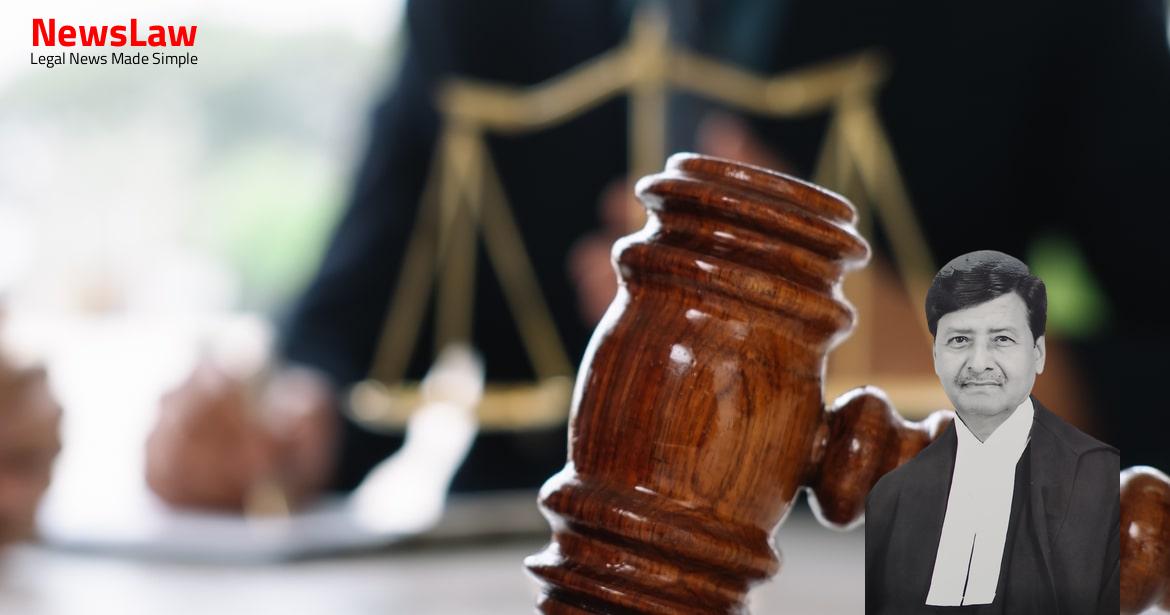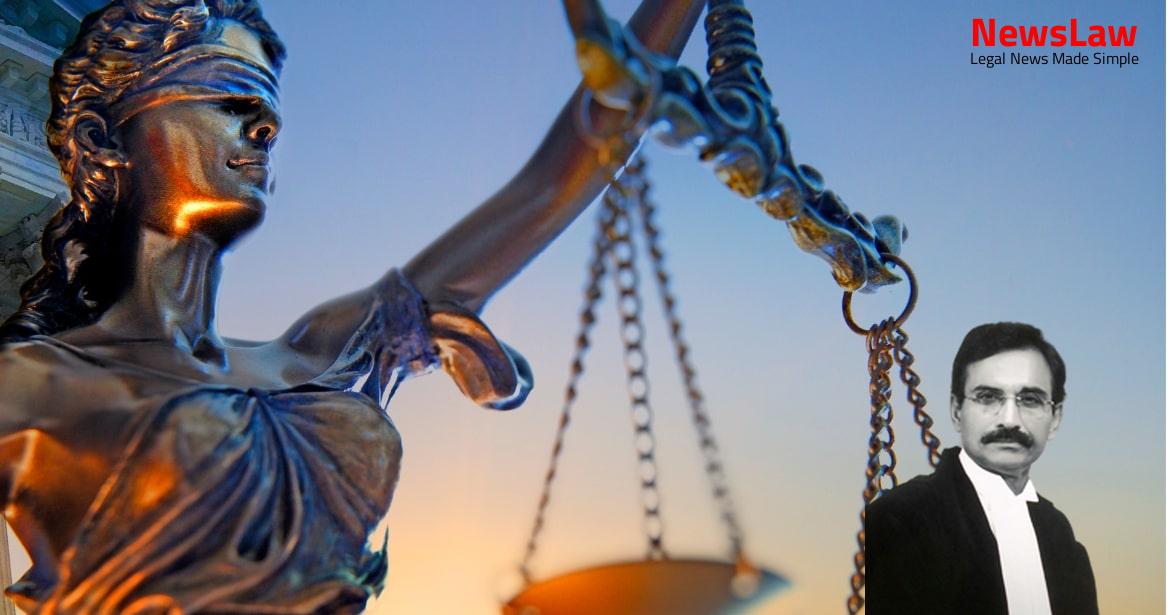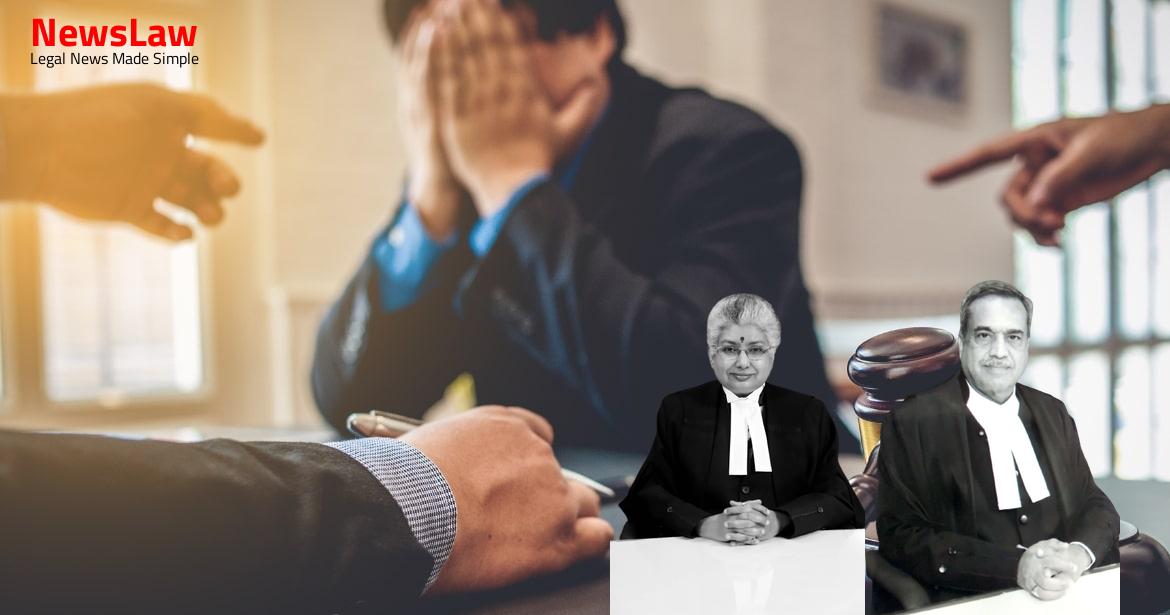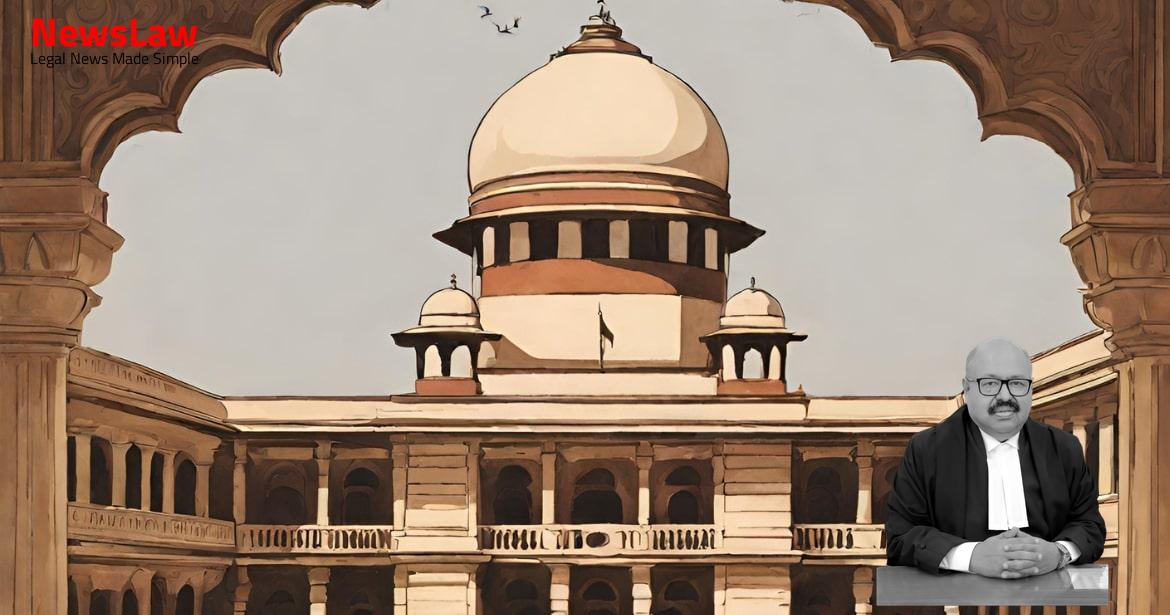In a significant legal battle over the management of temples, the Supreme Court has issued a restitution order in the case involving the High Court and the State. This ruling sheds light on the complexities of temple ownership and the application of restitution in legal proceedings. The decision sets a precedent for future cases regarding property rights and rightful possession. Find out more about this intriguing case in the following summary.
Facts
- The High Court passed an order on 21 August, 2019, allowing the respondent-State to take possession of the suit property.
- The appellant’s counsel argued that the execution application under Section 144 CPC should have been filed before the Court of first instance, not the High Court.
- The appellant’s counsel claimed that the High Court’s order dated 21 August, 2019, was without jurisdiction and the appellant has lost the right of appeal.
- The appellant’s counsel contended that the order should be set aside as it is not sustainable in law, and the respondents should adopt the remedy prescribed by law.
- The respondents’ counsel supported the decision of the Single Judge, stating that since there was no decree or order from the trial Court granting possession, Section 144 CPC does not apply.
- The Operative part of the Order dated 22 November, 1996, was also referenced in the discussion.
- The judgment dated 20 April, 2018, was challenged in SLP(C) No 13439 of 2018 before this Court, and it was dismissed on 17 May, 2018.
- Trial Court dismissed the suit with costs on 26 November, 1977.
- The judgement of the trial court was challenged in S.B. Civil First Appeal No 86/1979.
- High Court passed an ad-interim order on 11 January, 1978, preventing the appellant from being dispossessed from the premises where he resides.
- Ad-interim order directed for notices to be served to the G.A. and the respondents.
- A second stay application (163/96) was filed on 9 October, 1996 at the instance of the appellant-plaintiff.
- The Single Judge of the High Court passed a further interim order on the second stay application on 10 October, 1996, after hearing learned counsel for the parties.
Also Read: Supreme Court’s Judgment on Investigation Standards in Special Case No 37/11
Issue
- Whether the plaintiff is the descendant of Pandit Mahadev Ji and entitled to claim possession of the temple and shops along with income since 1925 from the defendants
- Defectiveness of the notice under Section 80 of the CPC to be determined
- Verification of whether Pandit Mahadev Ji was the Mahant or Shebait of the suit temples and handed over management to Dharmarth Vibhag in 1925 for safety during a pilgrimage
- Confirmation needed on whether the plaintiff is in possession and management of the suit temples in his own right and not as a servant of the state
- Validity of the suit in terms of being timely filed to be assessed
- Relief sought by the plaintiff needs to be examined
- Establishing whether the suit temples were founded by the plaintiff’s ancestors and if they were entitled to manage them as Shebeit and Mahant
- Exploration of whether the temples and shops were founded, built, and maintained by the former Jaipur State and managed through their servants
Also Read: Legal Analysis in Custody Battle Resolution
Arguments
- Learned counsel for the appellant referred to an Order dated 11.1.78 by the Division Bench of the Court.
- The Order stated that the party should not be dispossessed in the meanwhile.
- The possession was given to the appellant under an interim order from the Single Judge, which was pending first appeal.
- The first appeal was ultimately dismissed, and the possession needed to be restored by the appellant.
- The appellant argued that Section 144 would not take away the rights of the parties to use appropriate legal mechanisms.
- The High Court’s decision on 21 August, 2019 considered this argument and deemed no interference necessary.
- The fact has not been controverted by the respondents in their reply to the application.
- The information has been reproduced in the reply provided by the respondents.
- Shri Mathur, learned counsel for the respondents, submitted documents along with his affidavit.
Also Read: Legal Analysis on Challenging Compromise Decree
Analysis
- The Court of Subordinate Judge is designated as the Court of first instance for the administrator.
- The application for restitution was filed in the Court of District Munsif at Androth, which is the executing court but not the court that passed the decree.
- The transferee executing court is not considered a ‘court of first instance’ under Section 144(1) of CPC.
- Restitution is based on the principle of preventing injustice to the parties involved in court proceedings.
- Restitution is applicable when a decree is reversed, varied, or modified.
- The right to restitution arises automatically on reversal or modification of a decree.
- The obligation of restitution is to restore the parties to the position they were in before the court’s action displaced them.
- In this case, the possession of the property was handed over under interim orders by the High Court pending appeal, not based on a decree.
- The High Court’s order for restitution was appropriate as the appellant had no authority to hold possession of the property.
- The appellant is directed to hand over peaceful possession of the subject property to the respondents-defendants within eight weeks.
- Scope of post 1976 amended Section 144 CPC considered in Neelathupara Kummi Seethi Koya Phangal case.
- Explanations (a) to (c) added in 1976 Amendment Act but found irrelevant in the case.
- Decree or order can be varied, reversed, set aside, or modified under Section 144.
- Doctrine of restitution applies on reversal of decree, obligating party to make restitution to other party.
- Court can cause restitution to be made on application of any party entitled.
- Purpose is to place parties in the position they would have been but for the modified decree or order.
- Applies to situations where a decree or order is varied, reversed, set aside, or modified in any proceeding or suit.
- Empowers the court to pass consequential orders to the varied or reversed decree or order.
Decision
- Status quo as of the date of the order dated 11.1.78 to be maintained for the premises in question
- The appeal will be listed for hearing on 20 October, 1996
Case Title: BANSIDHAR SHARMA (SINCE DECEASED) REPRESENTED BY HIS LEGAL REPRESENTATIVE Vs. THE STATE OF RAJASTHAN
Case Number: C.A. No.-008400-008400 / 2019



